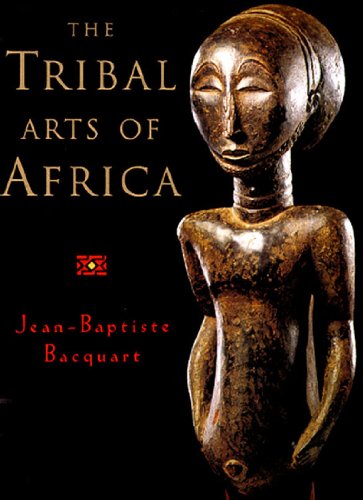
Choose one work of Greek Sculpture (male or female of any time period) and one work of African sculpture or Mask (of the corresponding gender). Compare and contrast the two sculptures formally and objectively and connect EACH sculpture to their own cultural beliefs, practices and ideals that helped form the artistic ideals expressed, visually, within the sculpture.
These books have been placed ON RESERVE in the library, along with others relevant to African sculpture, masks, and their historical or cultural context. You can find the books in the Reading Room, around the corner to the right, on Ms. McKim's office windowsill.
 African Forms : Art and rituals
by
African Forms : Art and rituals
by
 The Tribal Arts of Africa
by
The Tribal Arts of Africa
by
These books have been placed ON RESERVE in the library, along with others relevant to Greek sculpture and its historical or cultural context. You can find the books in the Reading Room, around the corner to the right, on Ms. McKim's office windowsill.
 Greek Art
by
Greek Art
by
Khan Academy
Khan Academy's African Art sections include introductory articles offering thematic and historical overviews, followed by topic collections arranged by region: East Africa, West, Central, North, and Southern Africa.
Heilbrunn Timeline of Art History
The Heilbrunn Timeline of Art History, created by the Metropolitan Museum of Art in New York, is browsable by time period or geographical region. Strong coverage of both Greek and African works, with articles such as "The Technique of Bronze Statuary in Ancient Greece" and "Nok Terracottas (500 B.C.–200 A.D.)."
Art History Resources
Created by art history professor and scholar Christopher Witcombe, Art History Resources provides a carefully curated collection of links to other websites with information on various art history topics.
The British Museum: Benin Bronzes
A case study in the controversy around private and museum ownership of objects from the African continent, often rooted in colonialism. The British Museum describes the history and current status of their claim to the Benin Bronzes. The famous Bronzes were taken during the violent invasion and occupation of the Kingdom of Benin, in what is now Nigeria, in 1897 by British forces. Today, the British Museum holds 900 Benin objects in their permanent collection. Over the past five years, Oba Ewuare II, the descendant of the line of Benin Kings, has submitted written and diplomatic requests for the Bronzes to be returned to Benin City, Nigeria.
For off-campus access to the library's databases, please email the librarians for the list of passwords. The one exception is JSTOR, which does not require a school-wide username and password. Instead, for off-campus access, you must first make a personal account in JSTOR while still on campus; then use that account to sign in.